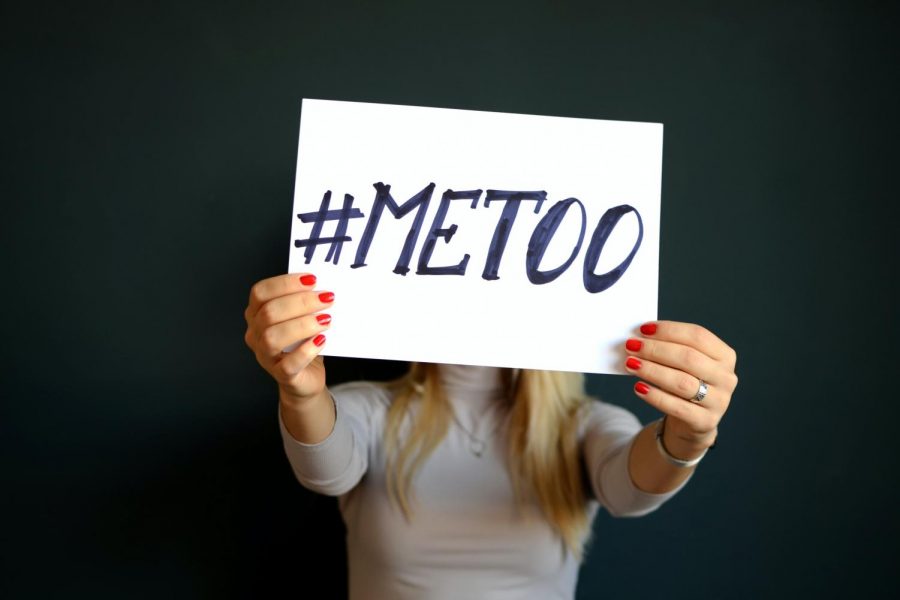Sexual Assault Awareness Month: Where Are We Now?
Protests against sexual assault reached a new high in 2017, when survivors around the world shared their stories with the hashtag MeToo. (Photo/Mihai Surdu/Unsplash)
April 30, 2020
April is Sexual Assault Awareness Month, a vital time for raising awareness about sexual harassment and assault. Since its founding in 2018, the Student Leaders Against Sexual Harassment, also known as SLASH, has worked to bring greater awareness of sexual violence to PDS. Seniors Julia Chang and Rina Sclove drafted sexual harassment policies and procedures for PDS in 2017, and since then the conversation surrounding the topic has broadened, with events like the NOW conference stirring healthy discussion for the whole PDS community.
“The biggest change surrounding the discussion of sexual harassment at PDS since the passing of policy in 2017 is that we’re even having honest conversations about sexual harassment to begin with. Our school policy never before addressed the specific issue of sexual harassment, assault, or misconduct—a reflection of the fact that our culture and discourse never did either, at least not meaningfully,” says Chang. “The conversations between engaged students at PDS have always been a manifestation of current events. And only recently did a social consciousness about the power structures that embolden sexual misconduct to enter the mainstream.”
There is no question that what is talked about at PDS mirrors what is being discussed in the wider world. This can be seen through the formation of the Anti-Hate Squad in response to the increase in hate violence around our nation, or the topical meetings in affinity groups around current events like the Hong Kong protests. However, it is still quite shocking to see that throughout its distinguished 55-year history, PDS has not had a sexual misconduct policy until very recently. This speaks to the enduring stigma regarding the issue that many of its victims continue to face today.
While PDS has come a long way in its conversation around sexual harassment and assault, the issue has not vanished. The leaders of SLASH are well aware of how much farther there still is to go. “People get uncomfortable, annoyed when you point out the harmfulness in things so normalized — offhand jokes, clothing commercials, dress codes — but that’s exactly the point. Attitudes that set the foundation for sexual violence are ingrained in almost every part of our culture,” notes Chang. Insensitivity in language, as well as the reactionary response towards “political correctness,” is far from gone. In this respect, our school is not an exception to the wider world—we still need to consistently be mindful of what we say and how we act, as we still live in a culture that normalizes harmful “locker room talk.”
However, the leaders of SLASH are hopeful for the future. “I think we have to be mindful of the fact that a culture of sexual harassment isn’t something that disappears overnight, or even in a couple of years,” comments Sclove. “However, I think PDS is doing a really great job now, if the school continues their efforts to educate us about these issues and use their power as educators and disciplinarians to stop it, then we will keep moving closer and closer to the point when [sexual misconduct] no longer is a problem.”








